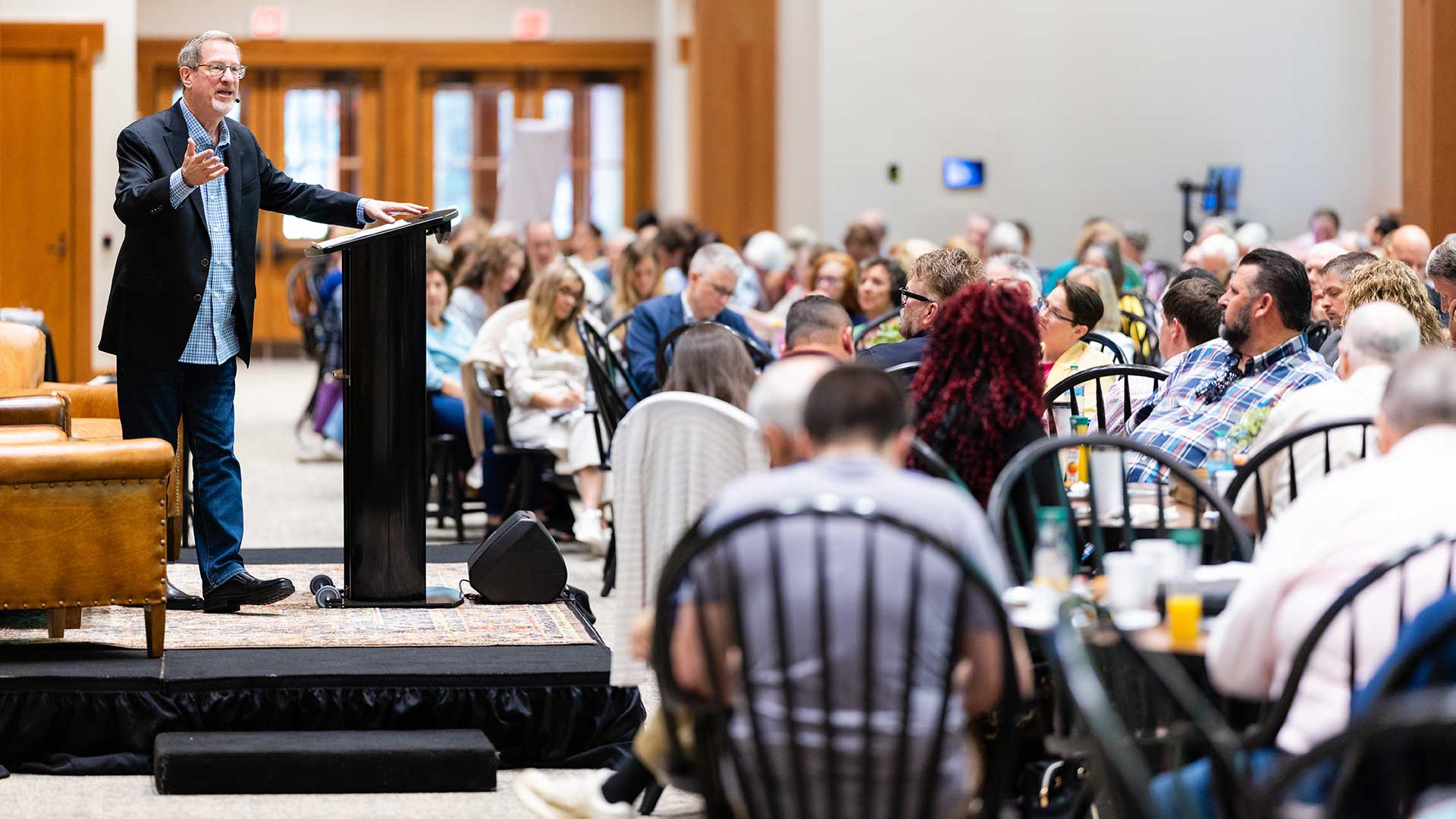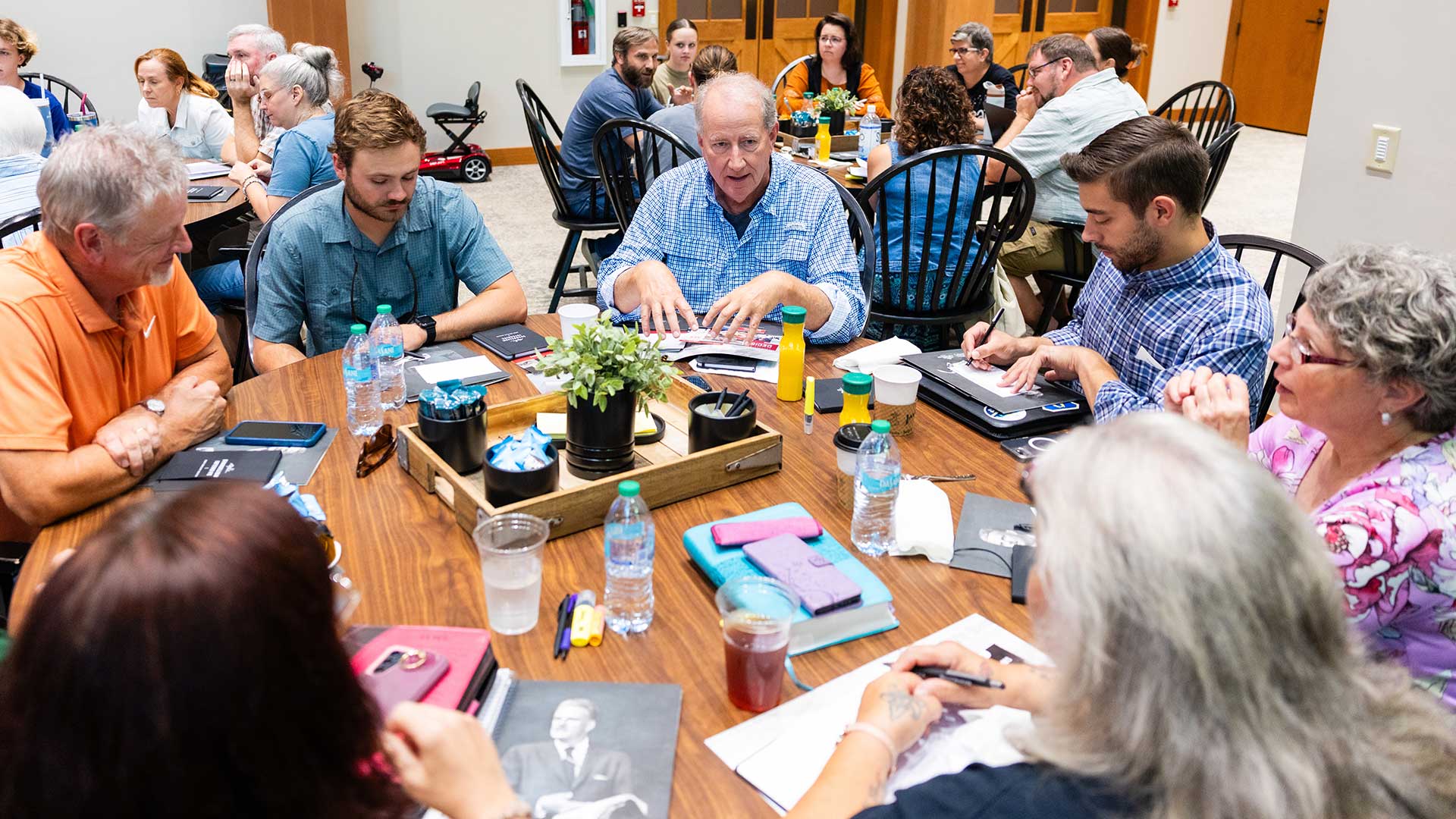
In the late 1970s, Lee Strobel was always defensive when it came to Christianity. As the legal editor at the Chicago Tribune, he was a professional sceptic.
Even though he worked as a journalist for years, it was his wife who gave him the “worst” news he had ever heard: She had decided to follow Jesus. It was 1979 and Lee’s first thought was divorce, but then he had an idea.
“Wait a minute, maybe I can rescue her from this cult,” he remembers thinking.
Lee recalled his journey to faith during an Evangelism Intensive at the Billy Graham Library on Friday. It’s been over 40 years since he launched a two-year investigation into the claims of Jesus Christ. His search led him to evidence he could no longer deny: Jesus Christ is the Messiah, and Lee believed in Him.
As a sceptic turned son of God, Lee shared with the crowd practical ways to winsomely and accurately explain the Gospel to others.
Science Backs Up Scripture
Janelle, who attended Friday’s event, recently saw a bumper sticker in the school pick-up line that read, “In Science I Trust.” Janelle said she often encounters that worldview in her daily life, and she’s stumped at how she should respond.
Lee encouraged the audience that science is not the Christian’s enemy—it’s actually a tool to reach the data-driven culture.
“The universe is finely tuned on a razor’s edge so that life can exist,” Lee said. “It calls for an explanation other than mere chance.”
Everything in this world, from the origin of the universe to the strands of DNA in every cell of the human body, points to an intentional, loving, and all-powerful God, he added. Christians can use these scientific arguments to point to a relational God.

Make Sure the Gospel Is in Your Testimony
Lee Strobel’s testimony, as told in the book The Case for Christ, is an international bestseller that has inspired thousands of people around the world. But you don’t need to write a book to share the Gospel, he said; you can simply share your story.
This prompted one discussion question during the Evangelism Intensive: “How can you weave the Gospel into your testimony?”
Around the tables, participants talked about how they might reach non-Christians near them. Cliff Hanley shared how he connects the Bible story of the demon-possessed man with his own testimony.
In the gospel of Mark, Jesus healed a man from spiritual darkness. The man then asked to follow Jesus to His next destination, but the Saviour had other plans.
“Jesus said, ‘No, I want you to go back and share your story,’” Cliff said. And that’s exactly what Cliff did, too.
After God saved him from addiction, Cliff went on to start an addiction ministry at his church in Greenville, South Carolina, where he continues to share God’s grace through his story.
Compassionate Conversations
In the final session of the day, Lee Strobel addressed a hot topic around evangelism: apologetics. The word is often associated with intense debates or having the answer for every argument that comes your way. But Lee argued that God uses more than facts and figures.
“The key word is not debate, it’s dialogue,” Strobel said. “It’s having a friendship with someone who may be far from God where we create a safe place, where they’re willing to express their doubts and their questions and their scepticism.”
Scott Elliott, a youth pastor who attended the Evangelism Intensive, remembers this truth playing out recently in his own life. He had talked with a man who’s an atheist but is married to a Christian woman. After their first conversation, the man agreed to meet Scott again.
“Apparently, the way I listened, and I didn’t argue—I just let him vent for five or 10 minutes—it made a huge impact. He actually had coffee with me so I can just listen to him some more,” Scott said. He’s praying that this new friendship will continue to grow—and bear fruit for eternity.
Lee encouraged the crowd that apologetics starts not on the streets, but in the pews. He suggested creating spiritual conversation groups for nonbelievers, a safe space where people can ask questions and foster friendships with Christians. This can also be a place for long time church members who may be embarrassed by their doubts.
No matter where Christians find themselves—at work, at the grocery store, or at church—sharing the Gospel and defending the faith should be an everyday practice, and it’s as simple as starting a friendly conversation.
Pray for all those who attended Friday’s Evangelism Intensive, that God will give them boldness and compassion as they share their faith with friends and neighbours. And ask God to draw many more to future evangelism training seminars at the Billy Graham Library.
